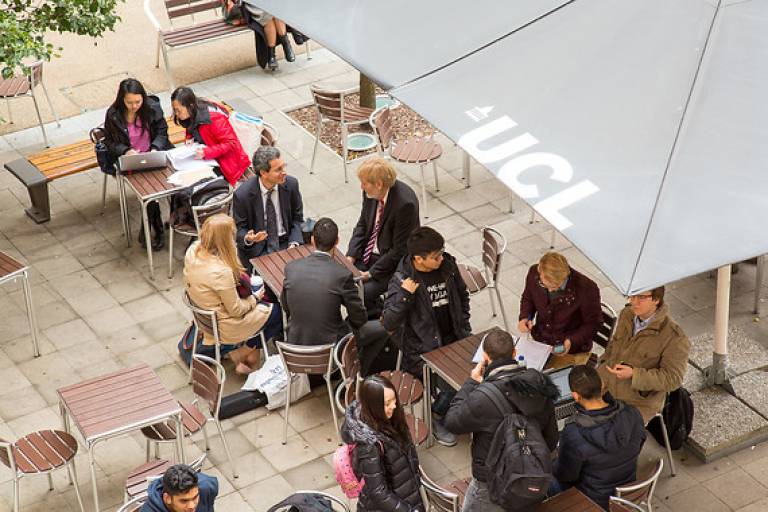Householders' natural disaster preparedness
1 April 2019
The study, published today in Nature Human Behaviour, found that by engaging households in evidence-based, face-to-face workshops, researchers could engineer change in householders' natural disaster preparedness that would last long term, potentially saving lives.

Although vulnerability to natural disasters is increasing globally, even in high-risk regions few households have measures in place to protect and prepare themselves. Ill-preparedness tends to lead to larger post-disaster losses and greater loss of life, injury and displacement.
"There is evidence that even small measures can save countless lives," says Professor Helene Joffe (UCL Psychology & Language Sciences), leader of the study.
"Being prepared for multiple hazards makes households more resilient, especially given that hazards can occur simultaneously or in rapid sequence, such as the recent cyclones followed by floods in Mozambique and Zimbabwe."
UCL researchers and their local counterparts ran workshops to empower people to make small household adjustments to prepare for disasters, such as securing TVs, computers and cabinets to the walls and ensuring objects are not placed above beds regarding protection from earthquakes. They also showed the importance of keeping exits clear of obstruction and having functioning smoke detectors and in-date fire extinguishers, regarding fire protection.
The workshops were comprised of two three-hour training sessions, after which the researchers observed whether households had adopted disaster preparedness behaviours. Half of the households in the sample were given the training, and half were not.
"We found that behavioural changes were most likely where there was home ownership and high outcome expectancy - that is, when individuals had a sense of agency and believed their actions would have an effect, they were more likely to make changes," says Professor Joffe.
"An unintended consequence of the study was that even the control group - which did not receive training - improved its preparedness behaviour. This suggests that when risk-related behaviours are simply being observed, householders will change their behaviours to become more prepared."
Professor Joffe concludes that face-to-face training, or even simply home observations, by external sources such as a fire department, could be a way to ensure that measures are put in place by householders across a population to prepare for natural disasters. The very idea of a disaster being 'natural' obscures how much humans can do to protect themselves from such events.
Notes to Editors
For more information or to speak to the researchers involved, please contact Tash Payne, UCL Media Relations. T: +44 (0)7805280677 or +44 (0)20 3108 9243, E: tash.payne@ucl.ac.uk
Joffe, H., Potts, H. W. W., Rossetto, T., Dogulu, C., Gul, E., Perez-Fuentes, G., 'The Fix-it face-to-face intervention increases multihazard household preparedness cross-culturally' is published in Nature Human Behaviour.
The DOI for this paper is 10.1038/s41562-019-0563-0
About UCL (University College London)
UCL was founded in 1826. We were the first English university established after Oxford and Cambridge, the first to open up university education to those previously excluded from it, and the first to provide systematic teaching of law, architecture and medicine.
We are among the world's top universities, as reflected by performance in a range of international rankings and tables, and are committed to changing the world for the better.
Our community of over 41,500 students from 150 countries and over 12,500 staff pursues academic excellence, breaks boundaries and makes a positive impact on real world problems.
 Close
Close

